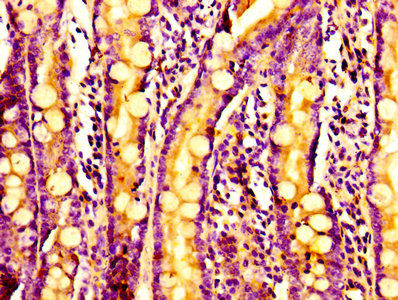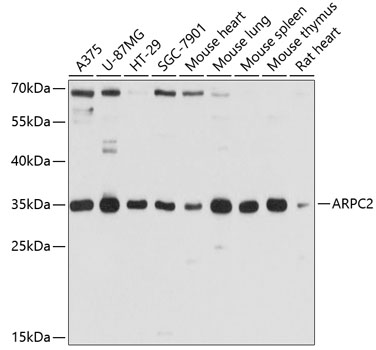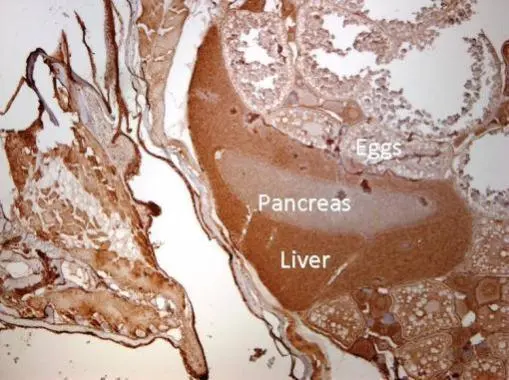
Immunohistochemistry of paraffin-embedded human small intestine tissue using CSB-PA03365A0Rb at dilution of 1:100
ARPC2 Antibody
CSB-PA03365A0RB
ApplicationsELISA, ImmunoHistoChemistry
Product group Antibodies
ReactivityHuman
TargetARPC2
Overview
- SupplierCusabio
- Product NameARPC2 Antibody
- Delivery Days Customer20
- ApplicationsELISA, ImmunoHistoChemistry
- CertificationResearch Use Only
- ClonalityPolyclonal
- ConjugateUnconjugated
- Gene ID10109
- Target nameARPC2
- Target descriptionactin related protein 2/3 complex subunit 2
- Target synonymsARC34, PNAS-139, PRO2446, p34-Arc, actin-related protein 2/3 complex subunit 2, ARP2/3 protein complex subunit 34, actin related protein 2/3 complex, subunit 2, 34kDa, arp2/3 complex 34 kDa subunit, testis tissue sperm-binding protein Li 53e
- HostRabbit
- IsotypeIgG
- Protein IDO15144
- Protein NameActin-related protein 2/3 complex subunit 2
- Scientific DescriptionActin-binding component of the Arp2/3 complex, a multiprotein complex that mediates actin polymerization upon stimulation by nucleation-promoting factor (NPF) (PubMed:9230079). The Arp2/3 complex mediates the formation of branched actin networks in the cytoplasm, providing the force for cell motility (PubMed:9230079). Seems to contact the mother actin filament (PubMed:9230079). In addition to its role in the cytoplasmic cytoskeleton, the Arp2/3 complex also promotes actin polymerization in the nucleus, thereby regulating gene transcription and repair of damaged DNA (PubMed:29925947). The Arp2/3 complex promotes homologous recombination (HR) repair in response to DNA damage by promoting nuclear actin polymerization, leading to drive motility of double-strand breaks (DSBs) (PubMed:29925947).
- ReactivityHuman
- Storage Instruction-20°C or -80°C
- UNSPSC41116161






